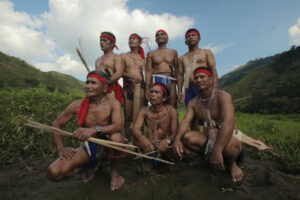By Kyle Aristophere T. Atienza, Reporter
A COFFEE enterprise hit by a major typhoon last year is banking on a recovery on the strength of its business model — which involves control over the entire supply chain and a revenue-sharing model with its growers in the Sierra Madre.
Bugkalot Coffee Co., a social enterprise, processes and markets coffee beans apart from controlling thee production side, ensuring uniform quality, according to Chief Executive Officer (CEO) Joseph Tanchi.
“One of the things that sets us apart is that we are a producer, not just a trader or processor,” he said in an e-mail.
“Since we produce our own coffee and process it ourselves, we have a high level of operational control and standardization,” he added.
The business has as many as four layers of quality control throughout the post-harvest processing, and has centralized storage and sorting, “which all contribute to a higher quality of coffee.”
Bugkalot Coffee partners with indigenous communities in the Sierra Madre mountains.
“From a community development perspective, you work with the local community to see what resources they have, and you start from there,” Mr. Tanchi said.
“Given that the Bugkalot community lies deep within the Sierra Madre mountains, and also that there are some natural geographic and logistical constraints, coffee makes sense,” he added.
“We are fully invested in the community because we have other, non-monetary goals,” he said, citing a revenue-sharing model that gives growers “a bigger piece of the pie (and ensures that they) are not just a cog in the supply chain,” he added.
Mr. Tanchi said growing conditions are favorable for the business — altitude is good for Arabica coffee, the company’s main product, and water is sufficient year-round.
“However, the natural soil composition is not the most fertile, requiring some intervention to improve it,” he said.
The business was hit hard by Typhoon Man-yi (Pepito), which caused agriculture losses worth over P260 million and inflicted damage to infrastructure.
“We continuously still struggle with raising funds for operations and for improvements or enhancements. One of the drawbacks of our centralized operation is that all the responsibility for operational expenses falls on us,” Mr. Tanchi said.
Asked about the state of the recovery process, he said “We just deal with it and keep moving forward as best as we can.”
Mr. Tanchi said the company has been planting a newer variety of Arabica, which he said is “higher-yielding” and would “help us increase production over the next few years.”
The company has been implementing “more and more” organic farming principles every year, with the plantation itself contributing “to greening and tree-planting and also prevents further slash-and-burn farming anywhere there are coffee trees.”
“As we bring in new organic farming technology, the farmers also see that and can adopt that as well,” Mr. Tanchi said.
He said the business has been using organic fertilizer for several years now and just recently visited a fully organic farming site “to learn even more.”
While the company is not yet fully organic, “we definitely aim to be one as much as we can.”
“We will continue what we’ve been doing, adding infrastructure as and when able, continue our expansion, maintain our quality and keep working towards more production at same or better quality,” Mr. Tanchi said.
“In parallel, we have been working on our cafe, and that should provide us higher margins and an additional distribution venue for Bugkalot Coffee.”

